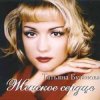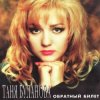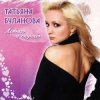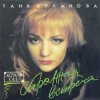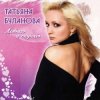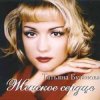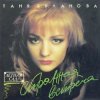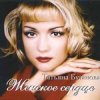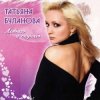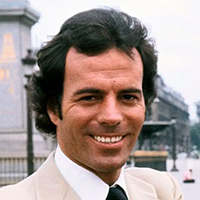
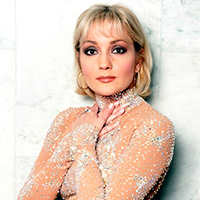
Tatyana Ivanovna Bulanova is a Russian pop singer, actress, and TV presenter whose lyrical delivery, unmistakable voice, and emotional song dramaturgy made her one of the most iconic artists of the post-Soviet stage. Her work shaped a unique style of “Russian pop-lyrical drama,” and her songs became the soundtrack of the 1990s and 2000s generation.
Early years and education
Tatyana was born on March 6, 1969, in Leningrad, to a naval officer and a photo lab technician. A childhood steeped in discipline, culture, and an emphasis on education formed her character from an early age. At music school she studied piano, showing talent for vocals, ear training, and stage presence.
In high school Bulanova attended vocal clubs and took part in amateur performances. In 1987 she entered the Leningrad State Institute of Culture as an evening student while working as a librarian at the Naval Academy.
Start of her music career — “Letniy Sad”
A turning point came in 1989, when Tatyana was invited to join the group “Letniy Sad” (“Summer Garden”). The band became one of the symbols of late-Soviet romantic pop lyricism.
With the group, Bulanova:
-
recorded several hits,
-
forged a recognizable stage persona,
-
gained her first nationwide fame.
From 1990 to 1995, “Letniy Sad” released commercially successful albums. The group’s style blended synth-pop, Slavic melodicism, and heartfelt delivery.
Transition to a solo career
In 1996, Tatyana launched her solo path with the album “My Russian Heart”. Its success cemented her star status, and the songs became radio staples.
Bulanova quickly earned a reputation as an artist who perfectly conveys:
-
longing,
-
love,
-
parting,
-
the listener’s emotional drama.
Her voice became instantly recognizable for its delicate delivery, timbral vibrato, and distinctive note of sadness.
Commercial breakthrough and peak popularity
The late 1990s and early 2000s marked the peak of her career. During this period she released albums that received:
-
platinum certifications,
-
heavy TV rotation,
-
“people’s favorites” status.
Especially popular songs included:
-
“Ne plach’” (“Don’t Cry”),
-
“Yasnyy moy svet” (“My Clear Light”),
-
“Moy son” (“My Dream”),
-
“Starshaya sestra” (“Elder Sister”),
-
“Suzhenyy moy” (“My Betrothed”),
-
“My drug drugu nikto” (“We Are Nobody to Each Other”).
Several songs became themes for TV series and films.
Bulanova’s calling card
Experts note her:
-
sincere delivery,
-
minimalist emotion with maximum dramatic effect,
-
atmospheric lyrics,
-
ability to sing “on the exhale,”
-
a unique, instantly recognizable intonation.
For this she has been called the “lady of sorrow,” the “queen of sad songs,” and the “voice of Russian women’s lyricism.”
Television and film
Bulanova actively took part in:
-
music TV awards,
-
vocal competitions,
-
projects such as “Narodny Artist” and “Dancing with the Stars,”
-
televised concerts.
She also appeared:
-
in episodic roles in TV series,
-
in music films.
These strengthened her media profile.
Personal life
The singer has been married three times:
-
Nikolai Tagrin (1992–2005), producer.
They had a son, Alexander. -
Vladislav Radimov (2005–2016), footballer.
They had a son, Nikita. -
Valery Rudnev — married in 2023.
Despite media attention, the artist has always remained discreet and respectful of her family.
Artistry and stage activity
Bulanova has released:
-
over 20 studio albums,
-
dozens of music videos,
-
hundreds of concert programs.
She has also experimented with:
-
rock arrangements,
-
retro styles,
-
acoustic formats,
-
dance music.
Titles and awards
-
Honored Artist of the Russian Federation (2004)
-
Ovation, Golden Gramophone, and Song of the Year awards
-
prizes for contributions to Russian pop culture
Musical style
Key traits:
-
melodramatic lyrics,
-
transparent vocals,
-
minimalist arrangements,
-
a pronounced “northern” lyricism.
Recurring themes:
-
loneliness,
-
hope,
-
the depth of love,
-
memory.
Discography (selected)
With the group “Letniy Sad”:
-
“Letniy Sad” (1990)
-
“Letniy Sad-2” (1992)
-
“Letniy Sad-3” (1993)
Solo albums:
-
“My Russian Heart” (1996)
-
“Night Taxi” (1998)
-
“About You” (2001)
-
“Yours” (2003)
-
“Love” (2010)
-
“Dear One” (2016)
-
“About You” (2020)
Interesting facts
-
Tatyana never studied voice professionally — her timbre is natural.
-
Her songs are often called the “urban romance of the 21st century.”
-
She avoids scandals and tabloid press.
-
In the 1990s she was among the most frequently played artists in the country.
-
Fans describe her concert effect as “emotional therapy.”
-
She has worked with composers who also wrote for Alsou, Alla Pugacheva, and Valery Leontyev.
Influence on the pop scene
Bulanova has:
-
helped shape the genre of women’s pop lyricism,
-
influenced a younger generation of performers,
-
remained in demand on the concert circuit,
-
maintained a loyal, long-standing fan base.
Music critics regard her as one of the most sincere artists on the Russian stage.
Current activity
Today, Tatyana:
-
continues to tour,
-
appears on television programs,
-
releases new singles,
-
records duets,
-
performs at anniversary concerts of pop legends.
Her musical form remains steady and relevant.
Conclusion
Tatyana Bulanova helped shape the emotional portrait of Russian pop in the 1990s–2000s. Her voice has become a symbol of sincerity, pain, love, and nostalgia.
She remains one of the most beloved artists, and her songs continue to live on — on air, in karaoke, and in listeners’ hearts — reflecting the feelings of anyone who has ever experienced love and parting.



